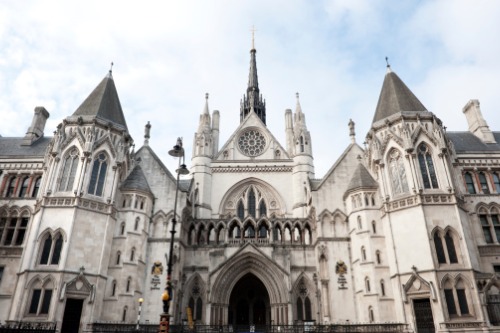

The UK Supreme Court has unanimously dismissed the appeal in Halliburton Company v Chubb Bermuda Insurance Ltd, ruling in favour of the insurer in the high-profile case.
Halliburton’s appeal related to the liability insurance arbitration which came to life after the Deepwater Horizon drilling rig explosion and fire in the Gulf of Mexico in 2010. The case revolved around the circumstances in which an arbitrator may appear to be biased.
Through its ruling, the Supreme Court clarified the issue of whether the conduct of an arbitrator who accepts appointments in multiple references concerning the same or overlapping subject matter gives rise to the appearance of bias and whether disclosure to the parties is required.
“The court found that the fair-minded and informed observer would not infer from Mr [Kenneth] Rokison’s failure to disclose his appointments in subsequent related references that there was a real possibility of apparent unconscious bias, particularly given the circumstances of the case and the fact that the extent of the overlap between the references was limited,” noted law firm Clyde & Co, which represented Chubb.
“In doing so, the court restated that the test under s.24 of the Arbitration Act 1996 is the common law test of apparent bias, which falls to be determined on the specific facts of an individual case. However, the court did establish that arbitrators have a legal duty to disclose facts or circumstances that might reasonably give rise to the appearance of bias, unless otherwise agreed between the parties.”
In the 61-page judgment seen by Insurance Business, Lord Hodge ruled: “I am satisfied that Popplewell J and the Court of Appeal were correct to hold that the fair-minded and informed observer, looking at the facts and circumstances which would be known to him or her at the date of the hearing in January 2017, would not conclude that there was a real possibility of bias or, in the words of section 24(1)(a) of the 1996 Act, that circumstances existed that gave rise to justifiable doubts about Mr Rokison’s impartiality.
“The appeal therefore fails.”
Lord Reed, Lady Black, and Lord Lloyd-Jones agreed while Lady Arden, in her concurring judgment, made further points to reinforce or qualify the conclusions reached.
“The court has preserved the integrity of English arbitration and the twin pillars of confidentiality and fairness with a thoughtful analysis of the issues that maintains the central importance of impartiality in English arbitrations, while remaining alive to the practical issues arising in particular circumstances and on particular facts,” asserted Clyde & Co partner Emma Ager following Friday’s decision.
“The court has also helpfully clarified that any such analysis must take place at the date of the relevant hearing and should not be analyzed from the perspective of an overly sensitive litigant. They have taken a common sense approach to the issue that rejects any idea of a bright line rule and confirmed that the question of bias depends on the facts of the specific case.”
Commenting on the outcome, Zaiwalla & Co partner and international arbitration head Leigh Crestohl said it will take some time before the practical effect of the Supreme Court guidance is known. This includes the possible impact on London’s position as a premier venue for the resolution of international disputes.
Signature Litigation counsel Neil Newing, meanwhile, believes the ruling may adversely affect the global community’s confidence in England and Wales as a seat for arbitration.
“For many in the global international arbitration community, the previous decisions in this case were perceived as being made to protect those members of the English Bar who have made a living from accepting the type of repeat appointments at issue in this case, in niche areas such as shipping and insurance,” declared the specialist international arbitration lawyer.
Newing is of the view that the decision is unlikely to change that perception.
He stated: “While the Supreme Court has importantly confirmed the arbitrator’s duty of disclosure, nonetheless in dismissing the appeal and thereby permitting the [continued] practice of multiple/repeat appointments, it has departed from the position that one would encounter before leading arbitral institutions… and which international users of arbitration may expect to find in a modern arbitration jurisdiction.”
